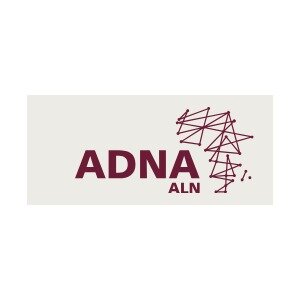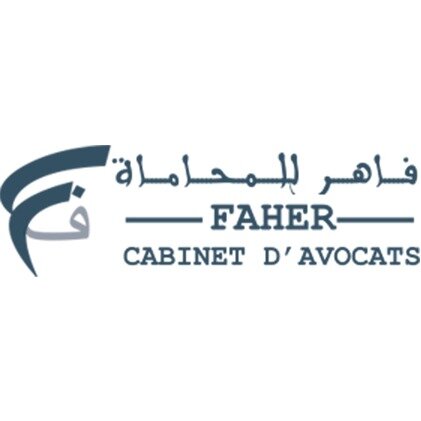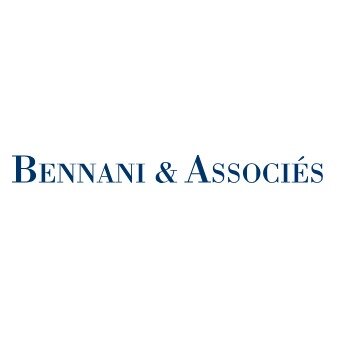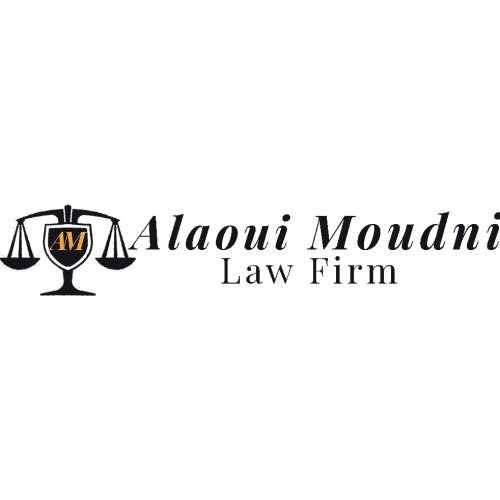Best Water Law Lawyers in Casablanca
Share your needs with us, get contacted by law firms.
Free. Takes 2 min.
List of the best lawyers in Casablanca, Morocco
About Water Law in Casablanca, Morocco
Water Law in Casablanca is a specialized area of legal practice that governs the ownership, use, management, and protection of water resources. Casablanca, as Morocco's largest city and economic hub, faces unique challenges due to rapid urbanization, industrial growth, and increasing demand for clean water. Water Law addresses the allocation of water rights, pollution control, infrastructure development, access for agricultural and industrial use, and the conservation of water resources. The legal framework combines national legislation, local regulations, and international agreements to ensure sustainable water management for residents, businesses, and the environment.
Why You May Need a Lawyer
Individuals and organizations in Casablanca may require legal assistance in Water Law under various circumstances. Common situations include disputes over water access or usage rights, new construction or development that affects water sources, environmental compliance for businesses, agricultural irrigation problems, water pollution claims, or licensing requirements for wells and boreholes. Additionally, international companies dealing with export, manufacturing, or wastewater treatment may need guidance navigating the complex regulatory environment, ensuring that their activities adhere to both national and local water regulations.
Local Laws Overview
Morocco's primary water legislation is Law No. 36-15 on Water, which replaced earlier statutes in an effort to modernize water management in line with the country's sustainable development goals. Key aspects of the local legal landscape in Casablanca include:
- Water is considered a public good, managed by the state on behalf of the population.
- Water use permits are required for extraction, diversion, or use exceeding certain thresholds, including groundwater and surface water.
- Strict regulations protect against water pollution, particularly from industrial discharge into public water supplies.
- Restrictions and monitoring apply to the development of wells and boreholes, especially given concerns about over-extraction and aquifer depletion.
- Water tariff structures and service provision are regulated by local authorities in line with national guidelines, affecting both domestic and commercial consumers.
- Transgressions, such as unauthorized water use or pollution, may result in administrative fines or criminal liability.
Regional water basin agencies (Agences de Bassin Hydraulique) play a central role in issuing permits, managing disputes, and enforcing environmental standards.
Frequently Asked Questions
What is the process for obtaining a water use permit in Casablanca?
You must submit an application to the relevant water basin agency detailing your intended use, volume of water required, and location. The agency will conduct an assessment and may impose specific conditions to ensure compliance with water management policies.
Can a private individual own a natural water source in Casablanca?
No, under Moroccan law, water resources are considered public property managed by the state. Private ownership is not permitted, but individuals can receive usage rights or concessions for specific purposes.
What are the penalties for illegal water extraction?
Unauthorized water extraction can lead to administrative fines, cessation orders, and in certain cases, criminal prosecution. Equipment may also be confiscated and destroyed.
How are water pollution issues handled legally?
Polluters are subject to strict liability under Moroccan law. Authorities may order remediation, impose fines, or initiate criminal proceedings in cases of deliberate or grossly negligent pollution.
Are there regulations affecting private wells and boreholes?
Yes, the drilling, operation, and maintenance of wells and boreholes requires prior authorization. Regular reporting and monitoring may be required to prevent aquifer depletion and mitigate pollution.
How are water disputes resolved between neighbors or businesses?
Disputes are typically addressed by local authorities or regional water agencies. If necessary, parties may pursue mediation or litigation in Moroccan courts, aided by legal counsel.
Can water rights be transferred or sold?
Water rights, as usage permits, are generally non-transferable without express authorization from the relevant water authority. Any proposed transfer must comply with legal guidelines.
What is the role of water basin agencies in Casablanca?
Water basin agencies issue permits, monitor usage, enforce regulations, resolve disputes, and oversee infrastructure projects to ensure sustainable water management in their designated regions.
How do environmental regulations affect industrial water users?
Industries must adhere to strict discharge limits and treatment requirements for wastewater. Failure to comply can result in fines, operational shutdowns, or loss of permits.
What are the main legal challenges facing water users in Casablanca?
These include navigating complex regulatory requirements, securing sufficient water for development, preventing contamination, addressing scarcity during droughts, and ensuring compliance with evolving environmental standards.
Additional Resources
Several governmental and non-governmental organizations assist with water law matters in Casablanca:
- Ministry of Equipment, Transport, Logistics and Water (Ministère de l’Equipement, du Transport, de la Logistique et de l’Eau)
- Agence du Bassin Hydraulique du Bouregreg et de la Chaouia (regional water basin authority for Casablanca)
- National Office for Electricity and Drinking Water (ONEE - Office National de l’Electricité et de l’Eau Potable)
- Local environmental NGOs offering advocacy and legal advice
- Bar Association of Casablanca for finding qualified legal practitioners specializing in Water Law
Next Steps
If you require legal assistance with Water Law in Casablanca, begin by identifying the nature of your issue-whether it relates to water rights, pollution, compliance, or litigation. Gather all relevant documentation, including permits, correspondence, and technical reports. Consult with a legal professional who specializes in Water Law to evaluate your options and ensure proper handling of your case. You may also contact the relevant water basin agency or governmental department for initial guidance. Timely legal support can help prevent complications and ensure your activities remain compliant with local and national regulations.
Lawzana helps you find the best lawyers and law firms in Casablanca through a curated and pre-screened list of qualified legal professionals. Our platform offers rankings and detailed profiles of attorneys and law firms, allowing you to compare based on practice areas, including Water Law, experience, and client feedback.
Each profile includes a description of the firm's areas of practice, client reviews, team members and partners, year of establishment, spoken languages, office locations, contact information, social media presence, and any published articles or resources. Most firms on our platform speak English and are experienced in both local and international legal matters.
Get a quote from top-rated law firms in Casablanca, Morocco — quickly, securely, and without unnecessary hassle.
Disclaimer:
The information provided on this page is for general informational purposes only and does not constitute legal advice. While we strive to ensure the accuracy and relevance of the content, legal information may change over time, and interpretations of the law can vary. You should always consult with a qualified legal professional for advice specific to your situation.
We disclaim all liability for actions taken or not taken based on the content of this page. If you believe any information is incorrect or outdated, please contact us, and we will review and update it where appropriate.

















